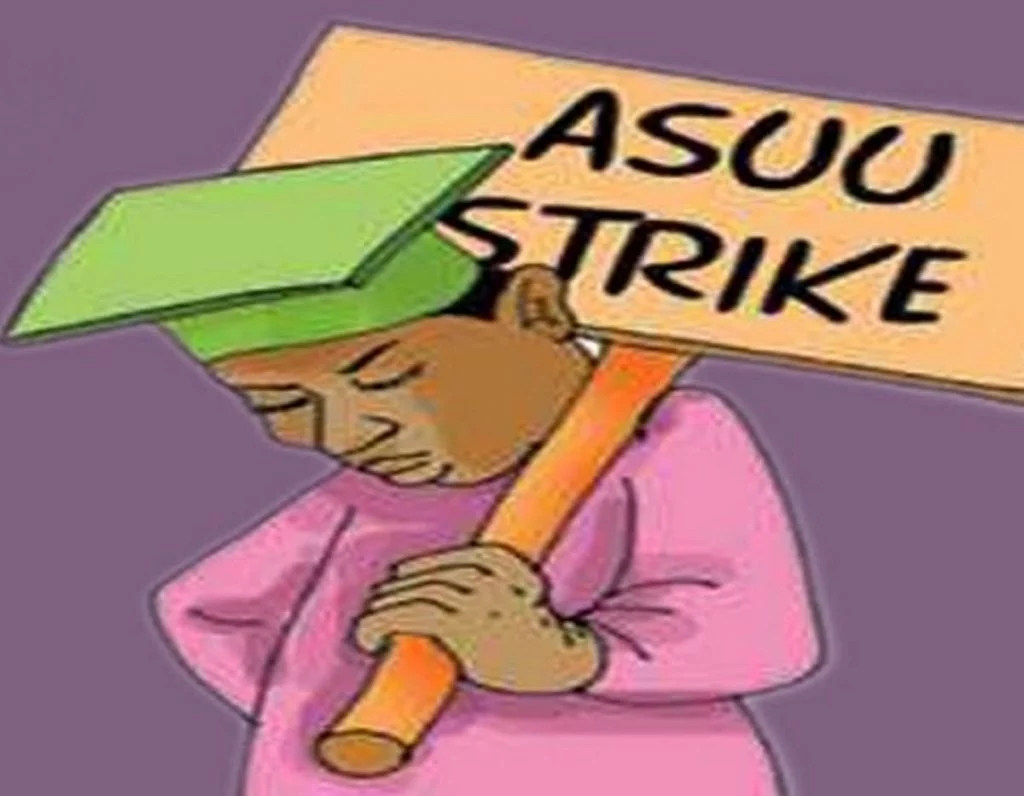The Academic Staff Union of Universities (ASUU) has stated that it is waiting for its lawyers for professional advice, following the National Industrial Court of Nigeria (NICN) order restraining it from continuing with the strike.
The President of the Union, Mr Emmanuel Osodeke, disclosed this in a telephone interview with the News Agency of Nigeria (NAN) in Abuja on Wednesday, September 21.
ASUU had embarked on industrial action to press home an improved academic environment and welfare of members.
Some of the lecturers’ demands are the funding of the Revitalisation of Public Universities, Earned Academic Allowances, University Transparency Accountability Solution (UTAS) and promotion arrears.
Others are the renegotiation of the 2009 ASUU-FG Agreement and the inconsistency in the Integrated Personnel Payroll Information System.
The strike has entered its seventh month the Federal Government instituted a suit before the court to halt it to enable students to resume.
This followed the failure of the government and the union to reach workable agreements.
However, students through the National Association of Nigeria Students (NANS) have embarked on protests by blocking the entrance to the International Airport Lagos and have threatened to block other major roads, if the demands were not met by the government.
Court Ruling
The NICN granted the order pending the determination of the substantive suit before the court, at the instance of the Minister of Labour and Employment, pursuant to his powers, as provided in Section 17 of the Trade Dispute Act, 2004, Laws of the Federation of Nigeria.
Ruling on the application brought by the Federal Government, the applicant/claimant, Justice Polycarp Hamman held that since the issues in dispute have been referred to the court, ordered ASUU (the defendants) not to take part in any further strike, pending the determination of the substantive suit.
According to Hamman, the argument of Femi Falana SAN, the counsel to the defendants that the act of the applicants had been concluded is of no moment and flies in the face of Exhibit 2 dated Aug. 29, 2022.
Attached to the affidavit in support of the application where the defendants communicated to the Minister of Labour and Employment, their decision to roll over the strike to a comprehensive indefinite and total strike, beginning from 12.01 am on Aug. 29, 2022.
Hamman noted that at the time of reading his ruling on Wednesday, Sept. 21, 2022, the strike action embarked upon by the defendants on Feb. 14, 2022, had not ended.
He maintained that workers cannot go on strike when relevant sections of the TDA have been complied with by the Minister of Labour in conciliating a labour dispute.
He praised the minister for acting in the national interest by referring the matter to the National Industrial Court of Nigeria.
While noting that the balance of convenience is crucial to determining an application for interlocutory injunction, Hamman stated that the balance of convenience tilts in favour of the claimants who own the universities and takes into consideration the interest of the students, whose parents cannot afford private universities in Nigeria or abroad.
He insisted that the ASUU strike inflicted irreparable damage to public university education in the country, lamenting that university students have been out of school for eight months in a country where age is considered for employment and enrollment into the National Youth Service Corps (NYSC), Nigerian Army, Air Force, Navy and paramilitary organisations.
Justice Hamman dismissed the claim by the defendant’s counsel that the strike was prompted by a serial breach of the agreement by the Federal Government, saying since the matter has been referred to the Industrial Court by the Minister of Labour and Employment, the defendants are mandated by the law not to engage in any further strike, pending the determination of the substantive matter.
He said;
Section 18 Subsection 1 of the TDA, 2004, connotes an obligation, which is mandatory and leaves no room for discretion.
Section 18 (2) criminalises any contravention of 18(1) and imposes the fine of N100 or imprisonment for six months for an individual and N1000 for a corporate body.
In this circumstance and on the strength of Section 254.6.(1) b of the constitution, Section 18(1) e of the TDA, Section 7(1) e, 16 and 19 b of the National Industrial Court of Nigeria Act 2006, I hold that this application is meritorious and the same is hereby granted.
Justice Hamman further held that the rephrase by Falana that the court should grant accelerated hearing of the application in place of injunctive relief “is of no moment”, going by the rules of the court.
He maintained that the applicants met the requirements for granting an injunction, contrary to the averments of Falana SAN.
Reacting inside the courtroom, lead counsel to the Federal Government, James U.K. Igwe SAN, said;
I thank his Lordship for the ruling, rendered with unparalleled erudition, scholarly analysis and research and which took into cognisance of education as being basic to education in Nigeria.

